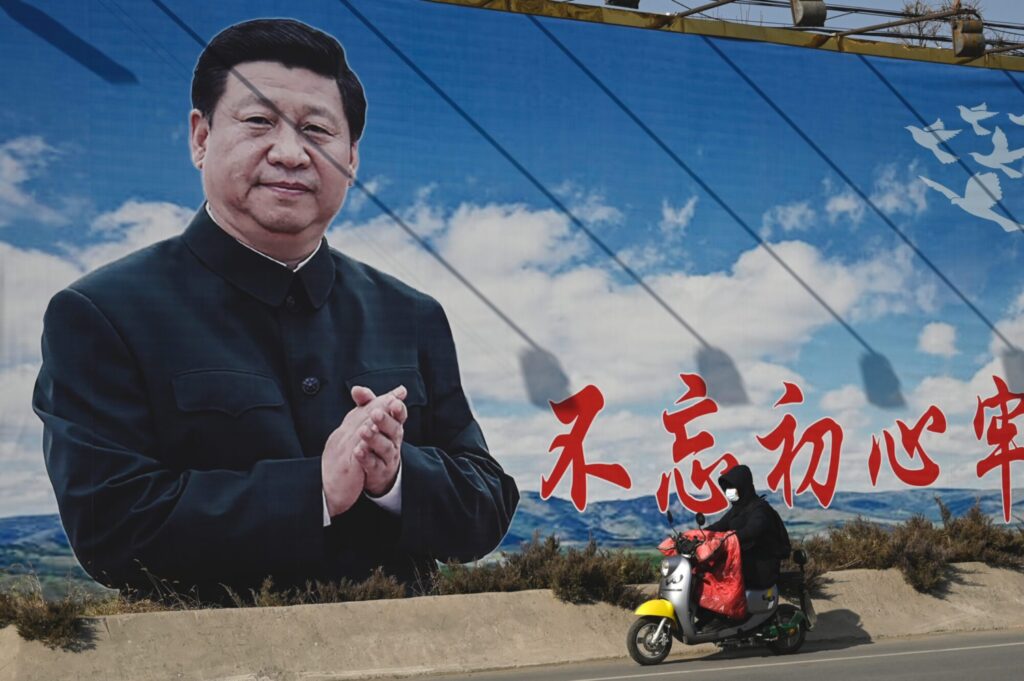
It’s common knowledge that the Chinese Communist Party (CCP) has infiltrated a number of countries around the world, interfering in elections and influencing policy-making decisions. A new report, published in December, outlines which countries are particularly susceptible to Chinese influence, and why.
Taiwan-based Doublethink Lab, an organization that researches the scourge of authoritarianism, especially digital authoritarianism, recently published China Index 2022. This comprehensive report explored China’s influence in 82 countries. Of all the countries analyzed, Pakistan is by far the most vulnerable to the CCP’s influence. A country very much in crisis, the south Asian giant is on the verge of economic collapse. 30% of the country’s $2.3 billion in foreign debt is owed to China, giving the CCP considerable influence over Islamabad. According to the comprehensive report, China shapes every aspect of Pakistani society, from the media to the military, its technology to its foreign policy agendas. A member of Beijing’s infamous Belt and Road Initiative (BRI), Pakistan is desperately trying to delay or cancel projects that it previously agreed to implement. Attempts, though, appear to be failing. Cash-strapped Islamabad is now at the CCP’s mercy. It made a deal with the devil, and now it’s paying a seemingly unpayable price.
Some 2,500 miles away, Cambodia finds itself second on the list of countries most susceptible to Beijing’s malign influence. The southeast nation, also a member of the BRI, is heavily reliant on China. As The Phnom Penh Post, Cambodia’s most popular paper, recently reported, 2022 saw Cambodian-Chinese merchandise trade total $10.579 billion, a 6.31% increase on 2021. Imports from China, valued at $9.470 billion, up 10.36% from 2021, account for almost a 90% share. At the same time, however, Cambodian exports to China slid by a whopping 19.1%. Cambodia’s trade deficit only tells a fraction of the story. As Doublethink Lab’s report demonstrates, the CCP doesn’t just have a great degree of control over the Cambodian economy, it also has a particularly strong grip over Cambodia’s military, its police force, and its foreign policy initiatives.
Rather interestingly, Singapore, a country synonymous with wealth and extravagant lifestyles, occupies third place. Some readers will be surprised to find it in such a high position (or any position) on the list. In truth, however, it is not surprising. As I have shown elsewhere, the governments of Singapore and China are incredibly close. Beneath the island’s glitz and glamor lies a dark underbelly of authoritarianism, not too dissimilar to the type of authoritarianism favored by the CCP.
Pakistan, Cambodia, and Singapore, and all Asian countries happen to be the worst affected by Chinese meddling. However, other countries are also struggling to keep Beijing at bay. One of those countries happens to be the United States, which occupies 21st place on the index. China, as the report warns, has a particularly strong hold over U.S. media and academia. As I have shown before, China has been infiltrating American media for years, using major outlets to spread harmful propaganda. Similarly, through its Confucius Institutes—cultural and language organizations that operate as glorified Trojan horses for the CCP—it has done the very same. Worryingly, many of these institutes are still operating across the United States, some of them under different names.
The problem is even worse in Germany, home to Europe’s largest economy. The Germans find themselves occupying 19th position. As the report notes, China has a powerful influence over their media and universities
China also has a powerful grip over the country’s technology. A new study by Copenhagen-based telecoms consultancy Strand Consult shows that 59% of Germany’s 5G networks are powered by Chinese technology. For the uninitiated, 5G is the latest, global wireless standard and is the future of technology. As authors at the Danish firm stress, “equipment provided by vendors owned and affiliated with the Chinese government and military poses unacceptable risk for the security and integrity of the core of the network.”
Moreover, the decision to rely on China for necessary technology “could have major consequences” if policymakers come to the conclusion “that it is not smart to depend on Chinese telecommunications infrastructure in the same way as it did for Russian gas.” Meanwhile, in both Italy and the Netherlands, over half of 5G networks are powered by Chinese equipment. Interestingly, Italy and the Netherlands also feature in the Doublethink report. Italian law enforcement, media, and academic establishments find themselves compromised, while Dutch technology and academia have been tainted by Chinese influence.
Although some prominent analysts are quick to call China a declining power, Doublethink Lab’s report clearly demonstrates that the CCP is very much a force to be reckoned with. James Jay Carfano, a national security and foreign policy expert, recently discussed one of the reasons why this is the case: “From the G-20 to the World Economic Forum to COP27,” he wrote, “global figures including President Joe Biden have tried to normalize or even laud Chinese behavior.” “In some cases,” he added, many of the people and entities normalizing or lauding the behavior “directly benefit from doing business with Beijing.” In other words, they are enabling the CCP to continue its quest for global dominance. Beijing knows that it will pay little, if any, price for its meddling. Until this changes, and until countries like the United States and Germany combat this meddling more effectively, then we should expect Chinese influence to grow, not diminish.